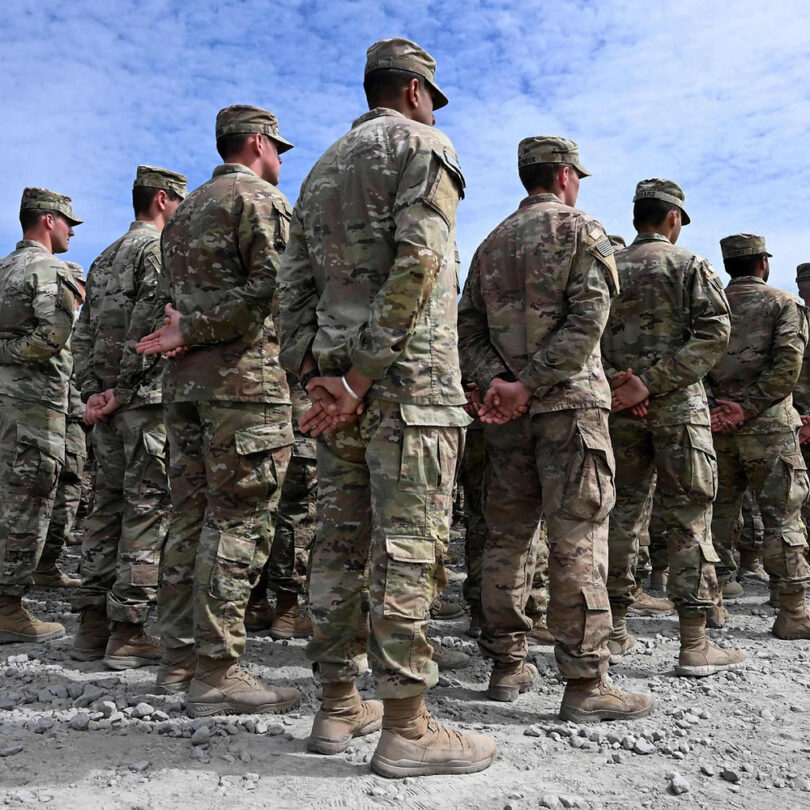Advertisements
The United States Army is one of the most powerful and respected military institutions in the world, attracting interest from individuals across the globe who wish to serve or work within its ranks. While working in the U.S. Army as a foreign national comes with specific restrictions, there are pathways available through visa sponsorship and legal residency for those who meet eligibility criteria.
If you’re an immigrant seeking Army jobs in the USA with visa sponsorship, this guide provides a clear overview of your options, entry requirements, and how to start the application process.
High-CPC Keywords Targeted in This Article
This article is optimized using high-performing keywords such as:
- Army work in the USA with visa sponsorship
- Join U.S. military as a foreigner
- U.S. Army jobs for immigrants
- Military enlistment visa sponsorship
- How to work for the U.S. Army as a non-citizen
- Defense contractor jobs USA with visa support
- U.S. Army career opportunities for foreigners
Can Immigrants Join the U.S. Army?
Yes — but under specific conditions.
To enlist in the U.S. Army, you must be either:
Advertisements
- A U.S. citizen, or
- A lawful permanent resident (green card holder)
Foreign nationals without a green card or permanent resident status are currently not eligible for direct enlistment. However, immigrants can still work in Army-related roles through civilian employment or with defense contractors that support military operations and often offer visa sponsorship.
1. Enlistment as a Green Card Holder
If you hold a valid U.S. green card, you are eligible to apply for active duty in the U.S. Army. This is the most straightforward path for immigrants to serve.
Entry Requirements:
- Age: 17–35 years
- High school diploma or GED
- Legal permanent residency (green card)
- Good moral character (background check required)
- Meet health and fitness standards
- English language proficiency
Green card holders can serve in enlisted positions and may apply for expedited U.S. citizenship after completing basic training.
2. Military Accessions Vital to the National Interest (MAVNI) Program
Currently Suspended
The MAVNI program was designed to allow certain non-citizens with in-demand skills (e.g., medical expertise or language proficiency) to enlist in exchange for a fast track to citizenship. As of now, this program is not active, but updates are expected in future years.
3. Civilian Jobs with the U.S. Army and Department of Defense
You do not have to be a soldier to work with the U.S. Army. Civilian job roles exist within the Army Civilian Service and the Department of Defense (DoD).
Common Civilian Roles:
- Logistics coordinators
- Intelligence analysts
- Medical professionals
- Engineers and technicians
- Administrative specialists
- Cybersecurity experts
- Translators and language analysts
Some of these positions are open to foreign nationals and may include employment-based visa sponsorship, such as H-1B or EB-2 visas.
4. Defense Contractor Jobs with Visa Sponsorship
Major defense contractors that work with the U.S. Army frequently hire international professionals for specialized roles and may offer visa sponsorship.
Top Employers Include:
- Lockheed Martin
- Raytheon Technologies
- Northrop Grumman
- General Dynamics
- Booz Allen Hamilton
These companies sponsor visas for professionals in IT, engineering, logistics, artificial intelligence, cybersecurity, and supply chain management.
Visa Types That Support Army-Related Work
1. H-1B Visa
For specialty occupation roles (engineering, IT, intelligence)
2. EB-2/EB-3 Visa (Green Card)
For skilled and unskilled permanent work opportunities
3. O-1 Visa
For individuals with exceptional abilities or achievements in science, technology, or defense
4. J-1 Visa
Available for training and internship programs related to military support roles (limited availability)
How to Apply for Army-Related Jobs with Visa Sponsorship
Step 1: Determine Eligibility
Confirm your immigration status and qualifications. Green card holders can enlist; others must look for civilian or contractor roles.
Step 2: Build a U.S.-Style Resume
Highlight your skills, military experience (if applicable), technical expertise, and English language fluency.
Step 3: Apply to Verified Job Boards and Employers
Use trusted resources:
- – For enlistment opportunitie
- – Federal government civilian jobs
- – Defense and security jobs
- Company websites of defense contractors (e.g., Raytheon, Lockheed Martin)
Step 4: Prepare for Screening
Most positions will require:
- Security background checks
- Drug testing
- Documentation of immigration status or eligibility to work
Tips for Immigrants Seeking U.S. Army Work
- Start by gaining lawful U.S. residency through immigration programs if you’re not a green card holder
- Learn English fluently, especially for technical and military communication
- Pursue certifications in logistics, IT, engineering, or healthcare to boost job prospects
- Stay informed about MAVNI and immigration policy updates from USCIS and the DoD
- Network with military recruiters or defense industry professionals on LinkedIn
Conclusion
While direct enlistment into the U.S. Army is limited to citizens and green card holders, there are multiple ways for immigrants to contribute to U.S. defense efforts through civilian employment, contractor jobs, and visa-sponsored roles in affiliated sectors.
If you meet the eligibility criteria, now is the time to explore career opportunities with the U.S. Army or its contractors and begin your journey toward a fulfilling role in national service or defense support.
Check your entry requirements, apply through verified channels, and secure your position in the USA’s defense workforce today.
Need guidance on which visa fits your background or help finding verified Army-related jobs with sponsorship? I can provide tailored advice to help you succeed.
Advertisements






